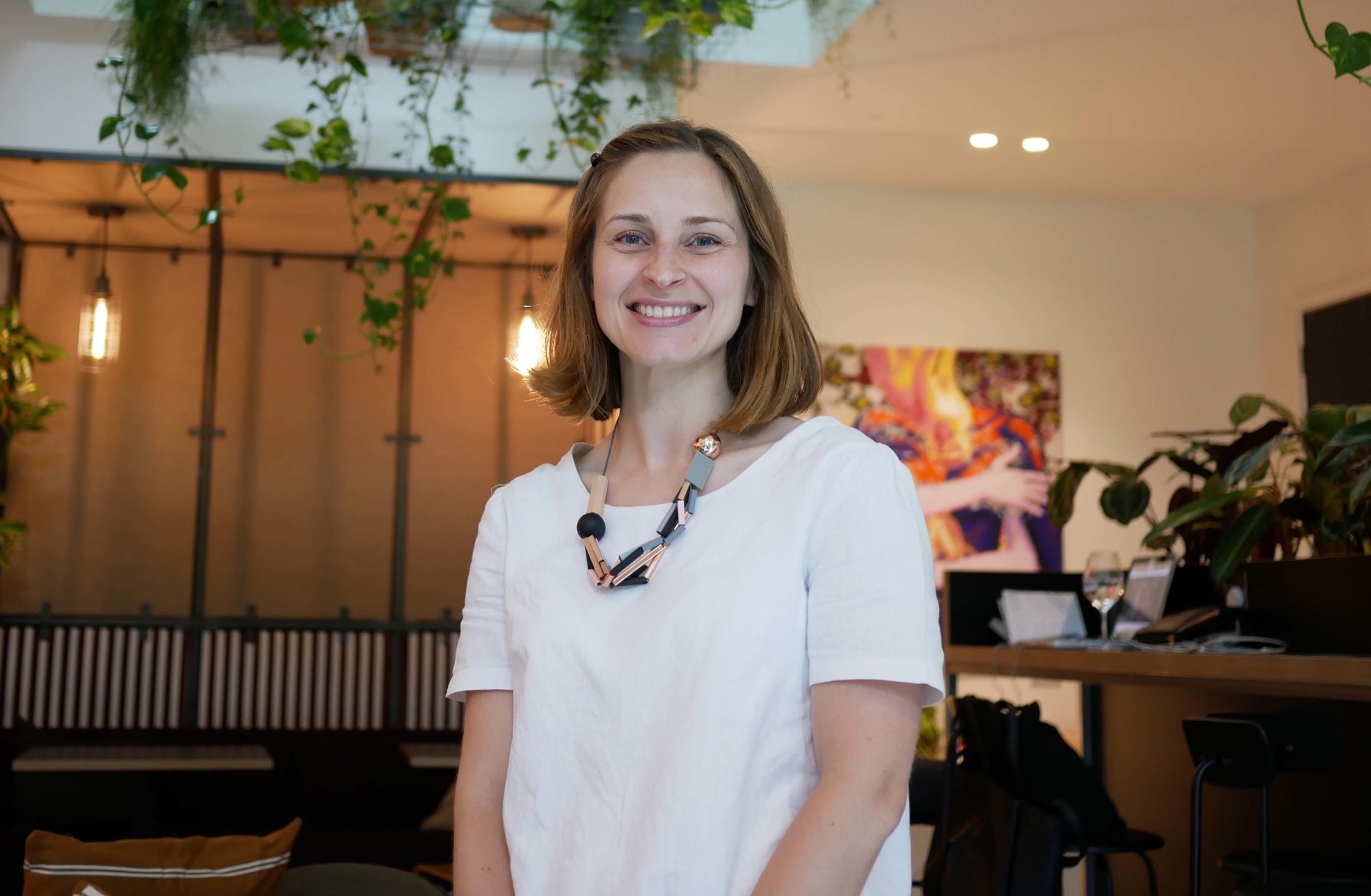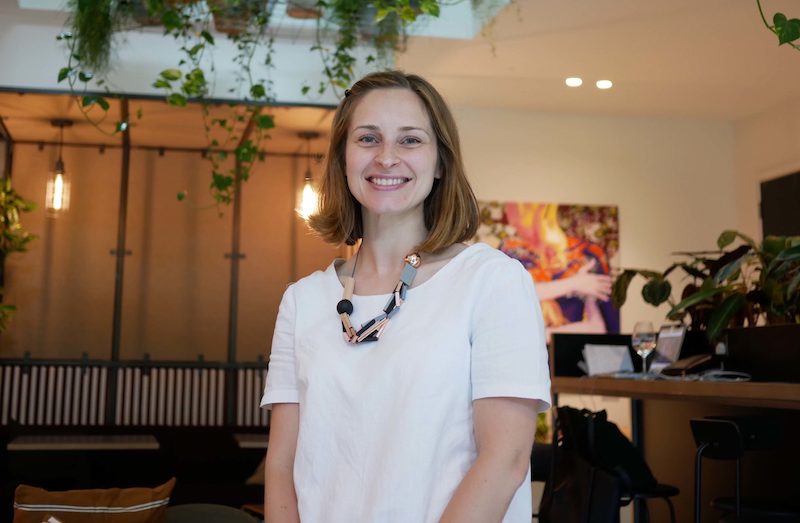Applying Technology to the World’s Biggest Problems: An Interview with Melanie Hayes
An Interview with Melanie Hayes, Managing Partner, Bethnal Green Ventures
Bethnal Green Ventures describes itself as “Europe leading early-stage ‘tech for good’ VC”. BGV backs ambitious founders using technology to tackle big social and environmental problems that aim to radically improve millions of lives. Prior to BGV, Melanie was a senior manager in Deloitte’s tech and telco practice and also served as an investment manager for 4iP, Channel 4’s digital media innovation fund and then asset manager, Octopus Investments. Melanie spoke with prepaid card provider Soldo about ‘tech for good’ and how BGV’s portfolio is adapting in response to the COVID-19 crisis.
One would have thought that there is a conflict between top-tier returns and ‘tech for good’ – so what does it mean for you?
As we see it, ‘tech for good’ is tech with intentionality. By default, technology is neither inherently good or bad, but nor is it neutral. So we think it’s important to develop technology with intentionality to do good – purposefully setting out to improve the lives of potentially millions of people by addressing some of our biggest challenges, whether those are social or environmental. In particular, we’re looking for technology to target three outcomes: helping people live healthier lives, building a better society, or developing a more sustainable planet.
Some of the world’s biggest challenges like the climate crisis or an ageing population also make for huge commercial opportunities, yet to date, many of those areas have seen low exploitation of the potential of digital technology. We want to see tech pointed towards fixing those really big challenges. Ideally, for every additional unit of their product or service that these companies create and sell, they also have one more unit of positive impact.
If you look back at the past two decades of technology, the bottom line is that almost every technology has delivered both good and bad at the same time. The classic example is Facebook: we’re all more connected than ever before. Yet thanks to human frailty, we’re also being horrid to each other in chat rooms. Is there not always a trade-off between good and bad in technology?
It’s really important to be aware of the unintended consequences of the technology that you’re developing. It’s one of the things we talk about to our ventures very early on.
During our initial intensive support program that all our ventures go through, we actually run a consequence-scanning workshop, where we talk start-ups through frameworks which will help them to gain a better understanding of their customers; using a lean approach to develop a product that their customers love and really value. But the process also forces them to think about who else might be impacted by the proposition or by the changes they are trying to create in their industry or the value chain.
In our most recent quarterly reporting, we also asked our portfolio to report on which unintended consequences they had identified in their products and services, and then what steps, if any, they were taking to mitigate or manage them.
But I do think that if you’re intentionally aiming to reduce inequality, increase access to opportunity, and have a positive social or environmental impact; then I think you’re less likely to see the significantly negative, unintended consequences. Our ventures are not immune to that weakness, but I think they’re more switched on about it than most.
Some of the world’s biggest challenges like the climate crisis or an aging population make for huge commercial opportunities; yet to date many of those areas have seen low exploitation of the potential of digital technology. We want to see tech pointed towards fixing those really big challenges.
Give me some examples – what does “healthier lives, building a better society, developing a more sustainable planet” look like at startup stage?
In health, Second Nature is an app which helps particularly those who are diagnosed as pre-diabetic to adopt positive habits and lifestyle changes that help them to achieve weight loss and avoid developing type 2 diabetes; which is a huge burden to the NHS and a cause of immense pain to patients. They raised a seed round 18 months ago (led by Connect Ventures) and have just announced a Series A (led by Beringea). This really goes to show that tech for good represents a major market opportunity and can attract investment from backers who don’t necessarily identify as impact investors.
In sustainability, LettUs Grow have developed a software and hardware proposition using aeroponics technology for growing food in vertical farms. Their technology shows improved yields, but also reduces the use of chemicals and water. They’re a really exciting business, based out in Bristol, and growing rapidly, having just closed a seed round led by Longwall Venture Partners. When experts say that we probably have less than 100 harvests left in our soils, because they’re so degraded from farming techniques, that’s scary. These are really big issues when you extrapolate them out across 20+ years.
One of our most recent ‘better society’ ventures is Musemio; who have developed some great cultural and interactive VR experiences for kids. They’ve partnered with a number of brilliant museums, to bring their collections to life and provide access to cultural education for children who don’t necessarily have ready access to those experiences; whether that’s for physical/geographical reasons or affordability reasons. There is a wealth of evidence that exposure to these types of experiences improves learning across the academic spectrum – not just cultural, but Maths and English too.
You use the cohort model, beloved of accelerator organisations for many years, and of course still championed by Y-Combinator. What’s the process?
That model really works for our strategy because it genuinely adds value to the start-ups we work with at such an early stage. Our 12-week intensive support program runs twice a year, roughly in the spring and the autumn, and each cohort welcomes around 10 ventures.
In order to get to those 10 ventures, our open call generally produces about 200 qualified applications, which are whittled down to around 40 face-to-face interviews, and then we make offers to about 10. To source the initial applications, we purposefully promote widely to reach as many interesting and diverse founders as we can. Certainly, we use other investors, mentors and portfolio companies as sources, but we really want to reach people who perhaps don’t have those pre-existing networks to be directly referred to us.
During the shortlisting and interview process, applications are reviewed by our portfolio companies and mentors as well as the BGV team, so there is always an external perspective.
The program consists of 12 weeks of intensive support, plus free office space if they’re co-located with us. The programme content covers everything from sales to strategy to impact measurement to hiring and building an organisational culture, fundraising etc. There’s a strong emphasis on lean, user-centred approaches, as these businesses are typically still working out exactly which part of a problem they are trying to tackle, the nature of the proposition and how they’re going to demonstrate value to users and customers.
We also facilitate introductions to a network of 90 mentors and over 200 founders in our portfolio. That ‘hive mind’ means there’s always someone who’s “been there, seen it, and done it” – a wealth of practical knowledge. There’s even events like ‘Founder Confidential’, where we bring in founders from our network to share their stories, warts and all, in complete confidence; which allows the cohort to ask questions that could be quite hard to ask in other situations.
The initial investment we provide is £30k for 7% equity in the business, ordinary shares that rank alongside the founders’ shares; and we have capacity to further invest in our most promising teams at pre-seed and seed stage.
You’re a certified B Corp. It’s a concept that keeps bubbling under here, but seems to have had more traction in the US…
We’re proud to be one of the UK’s founding B Corps. There’s still lots of ground to be covered, but some really exciting companies have joined the movement and I think it will take hold here as it has in other markets. We’re committed to it because it really does demonstrate that business can be a force for good.
Increasingly consumers, investors and employees all want to understand what the businesses they buy from, work for and invest in are doing to consider a broader set of stakeholders; not just their shareholders. The B Corp designation is a useful badge for saying that a company is thinking about its social and environmental impact.
It’s particularly helpful when big consumer-facing brands adopt the B Corp certification because that’s when consumers see it. Tea Pigs [a challenger luxury consumer tea brand] has recently become a B Corp – brands like that will be the key to making the designation mainstream – very much like FairTrade. People will then come to demand it of other brands and question them where it’s absent – they will want to know what in their supply chain or employee relations is precluding them from achieving certification.
In different markets, it accounts for different degrees of value today, but we know, for example, that people apply for jobs with us specifically because they like the fact that we’re a B Corp. Companies apply for investment from us, because they like that we’re a B Corp. And there are many other B Corps with whom we are connected through the UK community, where we can enter into exciting commercial partnerships.
Do you have in-house guardianship for your B Corp status?
Our Operations and Insights Manager is responsible for our ongoing certification; she also regularly looks at the assessment to understand how we might improve our score. For example, we’ve previously found it challenging to have a great score on some of the climate aspects of the assessment when you don’t own or operate the office you work from.
We’ve often worked in co-working or serviced offices, which gave us limited input over energy efficiency. Therefore, we’ve recently moved to the x+why co-working space in Whitechapel, a B Corp themselves, so we now know that we are in a far more sustainable workspace. Once you become a B Corp, it influences your ongoing decision making, rather than being a one off exercise.
BGV has a conscious aspiration towards gender equality, but I know that it is still an industry-wide challenge. How are you redressing the balance?
I wholeheartedly agree that gender diversity remains a challenge in the tech sector and the VC industry. A recent report showed that less than one penny in every pound invested by UK VCs went to all-female founding teams. Our equivalent statistic for 2018 was 44p [BGV’s 2019 report will be published soon]. We’re really proud of how many all-female and mixed founding teams we back; and we think that’s partly due to our selection process – not simply relying on warm introductions for all our deal flow.
Research proves that diverse teams really do build better businesses, and we strongly adhere to that idea. As far back as 2012 we were looking for founders who weren’t necessarily the stereotypical tech founders of the time.
Today, we also look for diverse management teams. That’s partly because, when we are looking for people to tackle these big social and environmental problems, we’re keen to back people with real-world experiences; and quite often that means that they come from all walks of life. They don’t need to be software engineers.
Particularly at the very early stage, we don’t consider it critical that they have in-house technical resources right from the get-go; because what they really need upfront is to work out what product to build; and that demands an understanding of the problem, not the solution.
Yes- the disease of ‘tech will fix everything’ generally comes from technologists who haven’t had the field-experience of the problems they want to solve…
That is essentially the very genesis of Bethnal Green Ventures. We were born out of an organisation called Social Innovation Camp, which ran hack weekends called camps long before hackathons were cool! We brought together talented engineers, designers and developers, with people who had first-hand experience of working in sectors that were dealing with social and environmental problems; to spend a weekend coming up with ideas about how tech could be used to improve ways to address those challenges.
We wholeheartedly believe that technology can’t do this in silos; but that there’s lots of potential to leverage the power and benefits of tech, to redress these huge challenges where the status quo is broken or inefficient. That’s why it’s really important that founders have a really good understanding of the problem in the market they’re trying to reach, rather than necessarily knowing exactly how to build the database that will underpin the product. Those skills can be hired. And in a market like London where technical skills are highly sought after, building a business with true purpose can be a real asset and source of differentiation in terms of hiring.
There’s lots of potential to leverage the power and benefits of tech, to redress these huge challenges where the status quo is broken or inefficient. That’s why it’s really important that founders have a really good understanding of the problem in the market they’re trying to reach, rather than necessarily knowing exactly how to build the database that will underpin the product. Those skills can be hired.
What counts as success for BGV? And how do you measure that nurturing process?
When we’re looking at a potential investment, we’re asking: is this a big and important enough problem, with a strong enough solution that in eight to ten years’ time, this team could address that problem in such a way that they could have built a business worth over £100 million and positively impacted the lives of millions of people.
So we define success both in terms of the financial value of the business, but also the amount of impact they will have. Thereafter, a lot of the metrics are standard commercial metrics, because we’re looking for businesses where the impact goes hand in hand with commercial success. Impact metrics shouldn’t be a sideline or an afterthought, but we’re still interested in monthly recurring revenues, growth rates and user engagement. How much repeat use of the service are you seeing? If it’s B2B, what’s the sales process looking like? Is it repeatable? Are you seeing an increase in conversions, a reduction in the length of the sales cycle or an increase in contract value?
Then, what’s the impact you’re achieving with your users, and are you measuring that too? So, for example, we mentioned Second Nature, the behaviour change app, earlier. Yes, we look at their monthly active users, but we also look at the average weight loss for each of those active users; and how long they have sustained that weight loss. Because we know that that’s a key driver of whether they are successful in avoiding developing Type 2 diabetes.
We find ourselves in strange times with the Coronavirus pandemic; but despite that, what’s getting you excited for 2020?
Some of our portfolio companies are responding to the challenges of the current pandemic in really positive ways. Talklife, for example, is a peer-to-peer mental health support network. They had a university-facing product anyway, but they have just reached out to all universities with a free trial to allow them to continue to offer counselling to their most at-risk students as we move to fully remote provision as their students leave to go home.
Hospify is a secure messaging app, approved for use by the NHS. They’ve been somewhat overwhelmed by the volume of inquiries they’ve had in the past week; as more and more NHS workers need to be able to work remotely and exchange messages efficiently, securely, safely, and quickly between one another to coordinate their response. In such challenging times, agility is really important and we’re seeing lots of examples of that happening in the portfolio in response to the effects of the pandemic.
More generally for 2020, we’re only ten years away from the deadline by which the UN’s defined Sustainable Development Goals (SDGs) should be achieved, so we’re really keen to find ambitious ventures that are working towards addressing those SDGs.
We’re also very interested in worker tech. The nature of work is changing, and we’re keen to help those who might otherwise be left behind. One of our companies, Organise, is a platform which helps workers team up to get better rights at work. They were instrumental in the campaign to have statutory sick pay brought forward to one day in response to Coronavirus.
And, of course, the climate crisis is a huge challenge. But we’re really interested in mitigation, as well as adaptation; ways to tackle the root causes. We have several investments aimed at making renewable energy more flexible and accessible, so that we can genuinely achieve a net-zero carbon economy.
In fintech, we focus on inclusive finance: how to make sure the needs of those who are often underserved or marginalised by existing mainstream financial services are met. The potential there is for a significant transformative effect on people’s economic situation if you can provide them with fairly priced and fit-for-purpose financial products.
And finally, there are macro trends like increasing urbanization which present an opportunity in all sorts of ways. We recently backed a company called Tranquil City who help people find moments of calm in busy urban environments, improving their mental wellbeing.
This interview is part of a series by Soldo, the prepaid company card solution that makes your expense accounting simple. You can read more interviews from Soldo’s interview series here.








